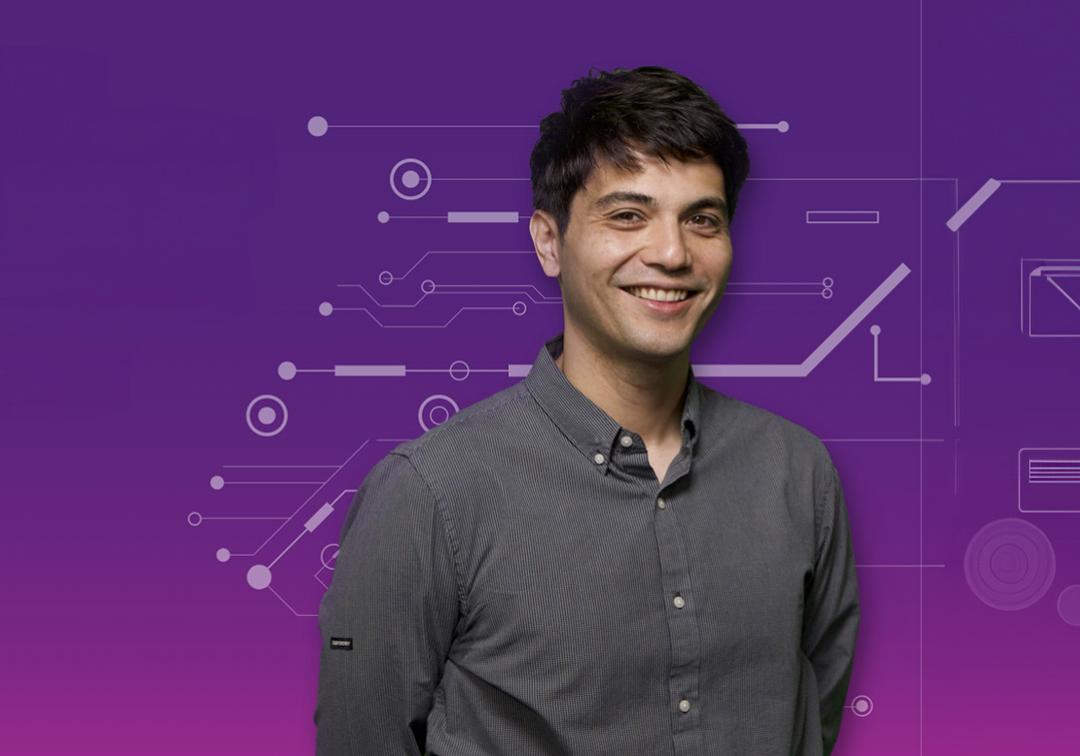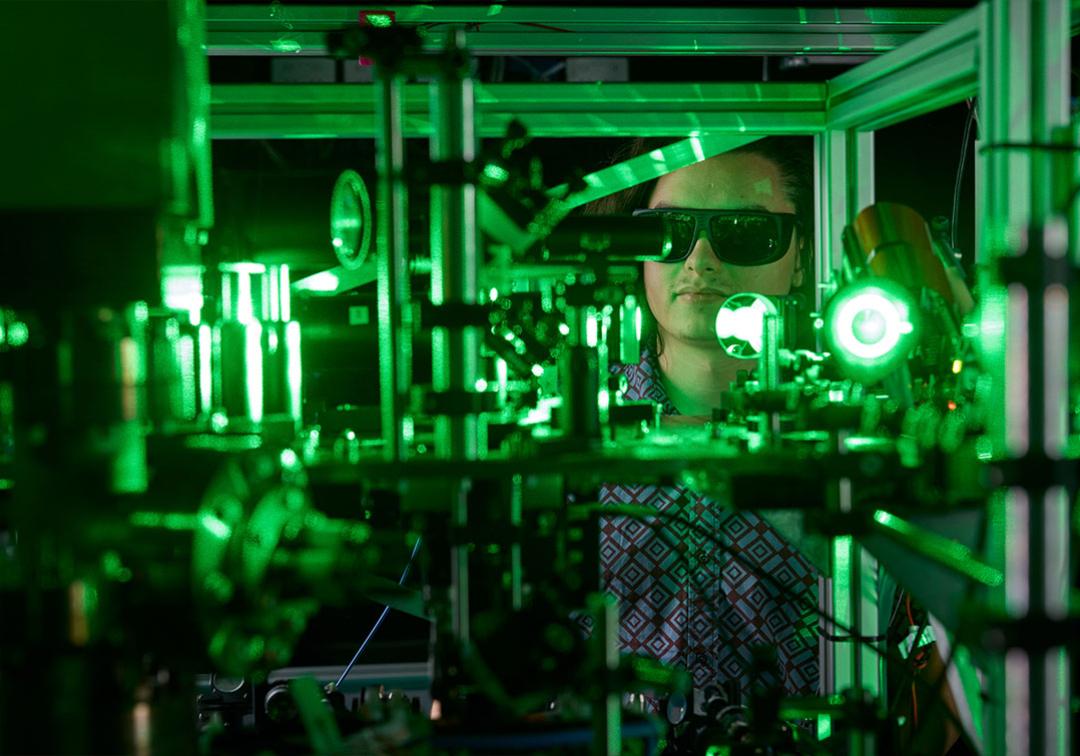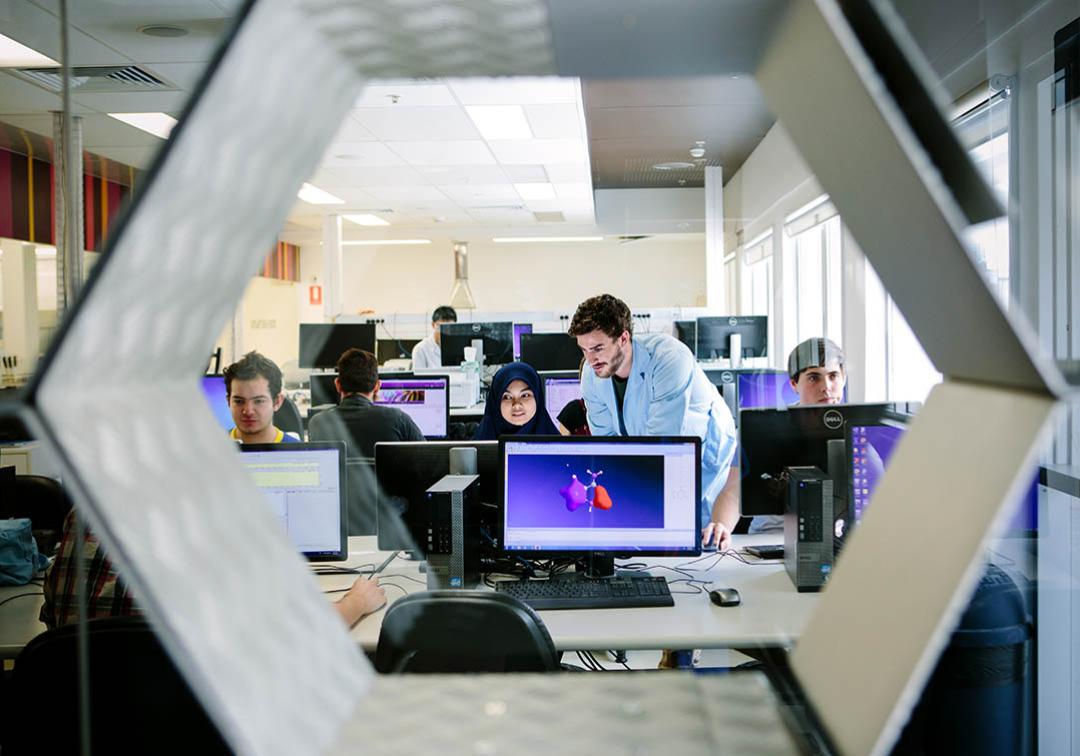
Master of Engineering Science
Overview
Interested in strengthening your capacity to design, develop, and implement complex systems and engineering projects? This program offers flexibility across a range of engineering disciplines, so you can develop your technical expertise in areas specific to your career aspirations.
The Master of Engineering Science is designed for applicants with a background in engineering. You will have an engineering degree and you will take one year of study to develop technical skills in-depth.
Benefit from a program that offers a flexible study plan. Because the Master of Engineering Science has such a large number of fields and courses to choose from, you can tailor your studies to suit your interests, your industry, or your career goals.
Your future is in industry – as a professional engineer with deeper technical skills in your engineering field.
Program highlights
- Benefit from a program that offers a flexible study plan. Because the Master of Engineering Science has such a large number of courses to choose from, you can tailor your studies to suit your interests, your industry, or your career goals.
- Students will develop professional engineering skills and technical expertise in their discipline through advanced and master's level courses. You'll graduate with the skills required to solve complex engineering challenges in a changing world.
- Undertake a supervised research project relevant to your engineering field. You'll be expected to systematically plan and manage all aspects of your project, and to clearly explain your findings and what they contribute to your field.
Fields of study
Tailor your studies to suit your goals. This program offers these options:
- Bioengineering
- Chemical Engineering
- Civil Engineering
- Electrical Engineering
How you'll learn
Your learning experiences are designed to best suit the learning outcomes of the courses you choose.
- Lectures
- Tutorials
- Research experience
- Laboratory work
- Fieldwork
What you'll study
At UQ, degrees are called 'programs' and subjects are called 'courses'.
Graduate salary
Engineering (postgraduate)
compared.edu.au
Professional memberships
When you graduate, you may be eligible for memberships with the following professional organisations. Contact the organisation to find out how to become a member.
- Australian Computer Society
Events
See all events
1 May - 22 May
UQ's Sustainable Energy programs, Q&A webinars
Stories
See all stories
Study tips
3 pathways to engineering and computing at UQ

UQ people
Meet the expert: exploring computer science with Dr Paul Vrbik
Stories
See all stories
UQ people
Meet the expert: exploring computer science with Dr Paul Vrbik

Uni life
What’s it like to study data, analytics and cyber security as a postgraduate?
Entry requirements
Entry requirements
To be eligible for entry, you'll need:
- a 4-year bachelor's degree (or equivalent) in a relevant engineering discipline (see below), or
- a 4-year bachelor's degree (or equivalent) in engineering which includes all of the relevant discipline content.
* Please note that if a graduate certificate (or graduate diploma) from the same program suite is used as the basis of entry into the program and you do not have a degree in the relevant discipline, you will not be eligible for credit towards the Masters program.
- a 4-year bachelor's degree (or equivalent) in a relevant engineering discipline (see below), or
- a 4-year bachelor's degree (or equivalent) in engineering which includes all of the relevant discipline content.
* Please note that if a graduate certificate (or graduate diploma) from the same program suite is used as the basis of entry into the program and you do not have a degree in the relevant discipline, you will not be eligible for credit towards the Masters program.
Relevant disciplines for previous qualifications
Relevant Disciplines depend on the field of study you intend to choose.
- For the Bioengineering field of study, relevant disciplines include bioengineering, biochemical engineering, bioprocess engineering, chemical engineering, chemical engineering and technology, process engineering.
- For the Chemical Engineering field of study, relevant disciplines include chemical engineering, chemical engineering and technology or process engineering.
- For the Civil Engineering field of study, relevant disciplines include civil engineering, structural engineering or civil and structural engineering.
- For the Electrical Engineering field of study, relevant disciplines include electrical engineering, electrical and electronic engineering, electrical power engineering, electronic engineering, telecommunication engineering, communication engineering or power engineering.
- For the Fire Safety Engineering field of study, relevant disciplines civil engineering, chemical engineering, environmental engineering, mechanical engineering or structural engineering.
- For the Materials and Manufacturing Engineering field of study, relevant disciplines include functional materials, materials engineering, materials science and engineering, or mechanical and manufacturing engineering.
- For the Mechanical Engineering field of study, relevant disciplines include automotive/vehicle engineering, thermal energy and power engineering, mechanical engineering, mechanical and manufacturing engineering, mechanical and aerospace, mechanical and industrial engineering, mechatronic engineering, mechanical and automation engineering or marine engineering.
- For the Mechatronic Engineering field of study, relevant disciplines include mechanical engineering, automation engineering, mechatronic engineering, aeronautical engineering, aerospace engineering, mechanical and manufacturing engineering, mechanical and industrial engineering, or mechanical and automation engineering.
- For the Software Engineering field of study, relevant disciplines include software engineering, computer science.
- For the Urban Water Engineering field of study, relevant disciplines include chemical engineering, civil engineering or environment engineering.
Related programs
Depending on your previous qualifications and current goals, you might want to consider
one of these related programs:
English language requirements
IELTS overall 6.5; reading 6; writing 6; speaking 6; listening 6. For other English Language Proficiency Tests and Scores approved for UQ
TOEFL iBT (including Paper Edition) - Overall 87, listening 19, reading 19, writing 21 and speaking 19.
PTE Academic - Overall Score of 64 and 60 in all sub bands.
BE - A minimum overall grade of 4 plus a minimum grade of C in all macro skills.
CES - Overall 176 and 169 in all sub bands.
OET is not accepted.
There are other ways to meet the English language requirements. For some programs, additional conditions apply.
Inherent requirements
To complete this degree, you have to meet its inherent requirements by demonstrating essential skills and attributes. Read the inherent requirements before you apply.
Student visas
International students who are accepted into full-time study in the Master of Engineering Science are eligible to apply for an Australian student visa (subclass 500).
There are a number of requirements you must satisfy before a visa is granted, including the Genuine Student (GS) requirement.
Additional application information
>Studies are usually on a semester basis. In some cases courses may be presented in a modular short-course format, or through flexible delivery.
>Students who successfully complete the Masters program may progress to research higher degrees, e.g. Master of Philosophy (MPhil) or Doctor of Philosophy (PhD).
Fields of study
Fields of study
Tailor your studies to suit your goals. This program offers these options:
New discoveries and modern technologies used in biology and medicine have led to the rapid change and growth of biomedical research and industry transitioning to sustainable operations. Rapid developments in the field of synthetic biology and its associated methods, including more widely available gene editing techniques, have substantially increased our capabilities for bioengineering.
As our ability to modify and control biological systems increases, biological processes are replacing chemical and mechanical processes due to their inherent advantages of renewable resources, mild operation conditions and minimal waste problem. Bioengineering creates the opportunity to solve health and environmental problems.
Careers
You will work at the interface of biomedicine and engineering. Examples of bioengineering applications include:
- Cell engineered to produce chemical building blocks
- Therapeutical drugs (biopharmaceuticals)
- Tissue engineered organs
- New medical imaging technology
- Diagnostic devices
Careers
- Consulting engineering firms
- Multinational engineering organisations
- Small and medium-sized enterprises
- Educational institutions
- Government and regulatory institutions
- Research and testing laboratories
The program enables students to advance their existing civil engineering knowledge and skills through practice-focused and advanced technical courses coupled with experiential learning experiences. Students will also be able to work directly and intensively with academic mentors through a research project in their final year.
Careers
- Government and regulatory institutions
- Consulting structural engineering and architectural firms
- Contracting companies
- Educational institutions
- Research and testing laboratories
- Insurance and banking industry
- Forensic investigation companies
All students complete a two-semester research project or industry placement giving you invaluable experience in developing, managing and delivering on complex projects.
Careers
Electrical engineers are employed in a wide range of organisations including industries, educational institutions, companies and governments. Some graduates also go on to establish their own companies early in their careers. Electrical engineers typically find careers in areas such as:
- Telecommunications
- Signal and image processing
- Robotics and intelligent systems
- Computer systems
- Electric power generation transmission and distribution
- Biomedical instrumentation, imaging, diagnostics and decision support systems
- Mining and transport
- Defense, aviation and automotive technologies
From the design of modern skyscrapers to the materials chosen to fabricate aeroplanes. Innovation in both construction techniques and materials as well as in how we use buildings results is a need for fire safety engineers to be involved in the design process of many buildings.
Changes in regulations across Australia and internationally mean that the need to include qualified and registered fire safety engineers on engineering projects is growing rapidly, and the demand for these specialists ever increasing.
UQ offers dedicated fire safety engineering programs that produce graduates who understand the design principles required to improve fire and life safety, and build more resilient cities and communities. Our programs are delivered by recognised international experts, and our graduates are highly regarded and sought after by industry.
You will develop a comprehensive understanding of new and sustainable materials and how they can be used in applications as diverse as aerospace, medical devices and novel functional applications. All students complete a research project or industry placement as part of this program.
Careers
Our graduates have the practical and advanced theoretical knowledge needed to step into roles that lead machinery development across the globe.
Mechanical engineers find employment in dynamic environments where machines are designed, developed, tested and manufactured.
Mechanical and materials engineers are employed by companies such as AlumniTech, TechExpo and Integra LifeSciences Corp.
Core to mechanical engineering process is the ability to formulate a problem, identify potential solutions, analyse and model solutions and select the most appropriate solution within constraints. This approach is integrated within the program and is applicable across a range of professions, making graduates well prepared for a changing world.
Careers
Mechanical engineers are employed in diverse industries including the automotive, aerospace, environmental, medical, power generation and building industries to name a few. Our graduates work in design and development, testing and manufacturing, consulting firms, government agencies and educational institutions.
Employment opportunities in Australia and overseas range from very large mining, refining, construction and manufacturing companies to small companies in which you might be the only engineer. Some graduates start their own companies soon after they have gained the experience required to become a Chartered Professional Engineer (CPEng).
Mechatronic engineers integrate mechanical engineering with electronics, computer systems and advanced controls in order to design and construct products and processes.
Mechatronic engineers are typically involved with the design of automated and intelligent machines, including artificial intelligence systems, robotics, automated industrial machinery and avionics. They are employed in areas including research and development, mining, aerospace and defence, or by government and industry groups.
Electives cover areas including engineering analysis and design, engineering mechanics, dynamics and automatic control, signals and communication, and electrical hardware and computer software.
The Master of Engineering Science (Software Engineering) provides a comprehensive and in-depth knowledge in software systems and applications. As our society becomes increasingly reliant on technology, there is great demand for skilled professionals to create the necessary software and information systems to transform the way we live and work.
In this field, you will use the principles of computer design, engineering, management, psychology and sociology in small or large multinational companies.
Careers
Accredited software engineers establish their own companies or work with large corporations in the areas of software design, development and advancement. Diverse roles are available, ranging from information security analysts, computer and multimedia programmers, through to software developers and information systems managers. Graduates also find employment as network managers with oversight of all company data including databases and storage.
Software engineers are employed by leading organisations such as SAP, Oracle, IBM, eBay, LinkedIn, Google and Canon.
The trend towards urbanisation and associated water stress in modern cities is strengthening, and as the urban centres become more densely populated this will not be reversed in the foreseeable future. Globally, there is shortage of engineers with expertise in all aspects of the urban water cycle and their reciprocal influence and integration.
Develop your technical expertise through advanced and master's level courses, and select electives to complement your discipline. You'll graduate with the skills required to solve complex engineering challenges in a changing world.
Careers
- Consulting / Multinational engineering organisations
- Small and medium-sized enterprises
- Educational institutions
- Municipal and governmental bodies
- Urban utilities
Fields of study
Tailor your studies to suit your goals. This program offers these options:
New discoveries and modern technologies used in biology and medicine have led to the rapid change and growth of biomedical research and industry transitioning to sustainable operations. Rapid developments in the field of synthetic biology and its associated methods, including more widely available gene editing techniques, have substantially increased our capabilities for bioengineering.
As our ability to modify and control biological systems increases, biological processes are replacing chemical and mechanical processes due to their inherent advantages of renewable resources, mild operation conditions and minimal waste problem. Bioengineering creates the opportunity to solve health and environmental problems.
Careers
You will work at the interface of biomedicine and engineering. Examples of bioengineering applications include:
- Cell engineered to produce chemical building blocks
- Therapeutical drugs (biopharmaceuticals)
- Tissue engineered organs
- New medical imaging technology
- Diagnostic devices
Careers
- Consulting engineering firms
- Multinational engineering organisations
- Small and medium-sized enterprises
- Educational institutions
- Government and regulatory institutions
- Research and testing laboratories
The program enables students to advance their existing civil engineering knowledge and skills through practice-focused and advanced technical courses coupled with experiential learning experiences. Students will also be able to work directly and intensively with academic mentors through a research project in their final year.
Careers
- Government and regulatory institutions
- Consulting structural engineering and architectural firms
- Contracting companies
- Educational institutions
- Research and testing laboratories
- Insurance and banking industry
- Forensic investigation companies
All students complete a two-semester research project or industry placement giving you invaluable experience in developing, managing and delivering on complex projects.
Careers
Electrical engineers are employed in a wide range of organisations including industries, educational institutions, companies and governments. Some graduates also go on to establish their own companies early in their careers. Electrical engineers typically find careers in areas such as:
- Telecommunications
- Signal and image processing
- Robotics and intelligent systems
- Computer systems
- Electric power generation transmission and distribution
- Biomedical instrumentation, imaging, diagnostics and decision support systems
- Mining and transport
- Defense, aviation and automotive technologies
From the design of modern skyscrapers to the materials chosen to fabricate aeroplanes. Innovation in both construction techniques and materials as well as in how we use buildings results is a need for fire safety engineers to be involved in the design process of many buildings.
Changes in regulations across Australia and internationally mean that the need to include qualified and registered fire safety engineers on engineering projects is growing rapidly, and the demand for these specialists ever increasing.
UQ offers dedicated fire safety engineering programs that produce graduates who understand the design principles required to improve fire and life safety, and build more resilient cities and communities. Our programs are delivered by recognised international experts, and our graduates are highly regarded and sought after by industry.
You will develop a comprehensive understanding of new and sustainable materials and how they can be used in applications as diverse as aerospace, medical devices and novel functional applications. All students complete a research project or industry placement as part of this program.
Careers
Our graduates have the practical and advanced theoretical knowledge needed to step into roles that lead machinery development across the globe.
Mechanical engineers find employment in dynamic environments where machines are designed, developed, tested and manufactured.
Mechanical and materials engineers are employed by companies such as AlumniTech, TechExpo and Integra LifeSciences Corp.
Core to mechanical engineering process is the ability to formulate a problem, identify potential solutions, analyse and model solutions and select the most appropriate solution within constraints. This approach is integrated within the program and is applicable across a range of professions, making graduates well prepared for a changing world.
Careers
Mechanical engineers are employed in diverse industries including the automotive, aerospace, environmental, medical, power generation and building industries to name a few. Our graduates work in design and development, testing and manufacturing, consulting firms, government agencies and educational institutions.
Employment opportunities in Australia and overseas range from very large mining, refining, construction and manufacturing companies to small companies in which you might be the only engineer. Some graduates start their own companies soon after they have gained the experience required to become a Chartered Professional Engineer (CPEng).
Mechatronic engineers integrate mechanical engineering with electronics, computer systems and advanced controls in order to design and construct products and processes.
Mechatronic engineers are typically involved with the design of automated and intelligent machines, including artificial intelligence systems, robotics, automated industrial machinery and avionics. They are employed in areas including research and development, mining, aerospace and defence, or by government and industry groups.
Electives cover areas including engineering analysis and design, engineering mechanics, dynamics and automatic control, signals and communication, and electrical hardware and computer software.
The Master of Engineering Science (Software Engineering) provides a comprehensive and in-depth knowledge in software systems and applications. As our society becomes increasingly reliant on technology, there is great demand for skilled professionals to create the necessary software and information systems to transform the way we live and work.
In this field, you will use the principles of computer design, engineering, management, psychology and sociology in small or large multinational companies.
Careers
Accredited software engineers establish their own companies or work with large corporations in the areas of software design, development and advancement. Diverse roles are available, ranging from information security analysts, computer and multimedia programmers, through to software developers and information systems managers. Graduates also find employment as network managers with oversight of all company data including databases and storage.
Software engineers are employed by leading organisations such as SAP, Oracle, IBM, eBay, LinkedIn, Google and Canon.
The trend towards urbanisation and associated water stress in modern cities is strengthening, and as the urban centres become more densely populated this will not be reversed in the foreseeable future. Globally, there is shortage of engineers with expertise in all aspects of the urban water cycle and their reciprocal influence and integration.
Develop your technical expertise through advanced and master's level courses, and select electives to complement your discipline. You'll graduate with the skills required to solve complex engineering challenges in a changing world.
Careers
- Consulting / Multinational engineering organisations
- Small and medium-sized enterprises
- Educational institutions
- Municipal and governmental bodies
- Urban utilities
Fees and Scholarships
Indicative annual fee
Approximate yearly cost of tuition (16 units). Your fees will vary according to your selected courses and study load. Fees are reviewed each year and may increase.
$8,948
2024
$8,948
2024
Approximate yearly cost of full-time tuition (16 units). Your fees will vary according to your study load. Fees are reviewed each year and may increase.
AUD $51,200
2024
AUD $51,200
2024
Government assistance
Financial aid
As an international student, you might be eligible for financial aid – either from your home country, or from the Australian Government.
HECS-HELP
Domestic places in the Master of Engineering Science are Commonwealth Supported. This means the cost of your education is shared between you and the Australian Government.
Instead of tuition fees, Commonwealth Supported students pay what are called student contribution amounts.
HECS-HELP is an Australian Government loan scheme to assist eligible students with the cost of their student contribution amounts.
Centrelink support
The Australian Government offers a number of income-support payments to eligible Australian university students.
Scholarships
You may be eligible for more than 100 scholarships, including:
How to apply
Applying online
All international applications should be submitted to UQ. If you prefer, you can use an approved UQ agent in your country.
The program code for the Master of Engineering Science is 5528.
Find out more about applying for postgraduate coursework study
Applying online
All domestic applications should be submitted to UQ.
The program code for the Master of Engineering Science is 5528.
Find out more about applying for postgraduate coursework study
Important dates
The closing date for this program is:
- To commence study in semester 2 - May 31 of the year of commencement.
- To commence study in semester 1 - November 30 of the previous year.
To learn more about UQ dates, including semester start dates, view the Academic Calendar.
Important dates
The closing date for this program is:
- To commence study in Semester 1 - January 31 of the year of commencement.
- To commence study in Semester 2 - June 30 of the year of commencement.
To learn more about UQ dates, including semester start dates, view the Academic Calendar.
Aboriginal and Torres Strait Islander applicants
For support with applying – or if you have any questions about university life – get in touch with our Aboriginal and Torres Strait Islander Studies Unit.
Explore other programs
Express yourself. And your interest.
They say choosing a degree is hard, which is why we've made it easy. Register your interest and we'll send you everything you need to know about applying to UQ.





